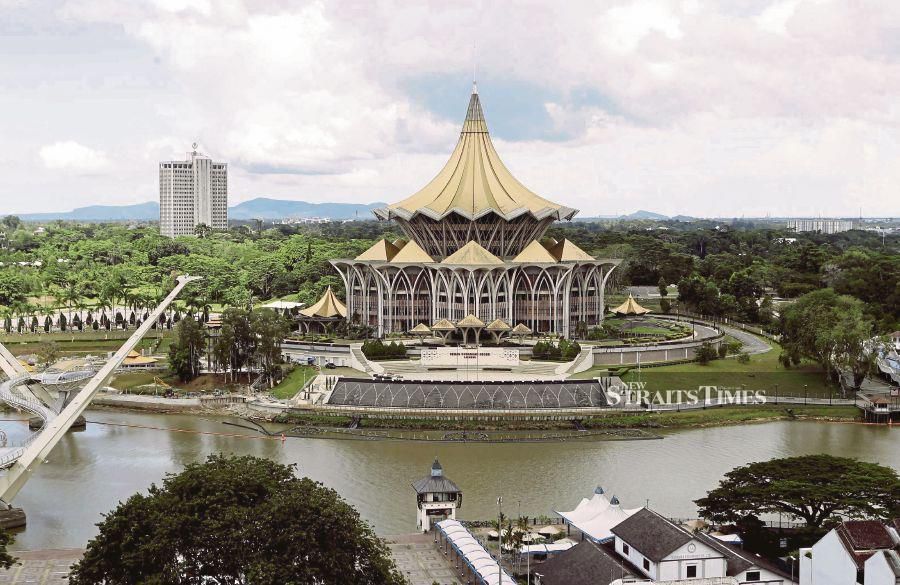It sounded like an idea that came out of the blue and it probably is: Senator Jaziri Alkaf Abdillah Suffian, the Perikatan Nasional Sarawak chairman, mulling in Parliament about turning Kuching into "the second capital of Malaysia".
The senator took inspiration from Indonesia's plan to move its capital city to East Kalimantan, which, when realised, will make Borneo the focal point of Asean, given that the country hosts the Asean Secretariat.
The largest island in Southeast Asia has always been something of a geographic anomaly: smack in the centre of the region, fronting one of the world's busiest trade routes, but remaining a political and economic backwater.
So if the political lifeblood of the regional heavyweight eventually flows in and out of Indonesian Borneo, does it not make sense for Malaysia to do likewise?
If it were so, the location of Kuching — almost equidistant between the two halves of the federation — seems ideally suited. But what would it mean in practical terms to turn the Sarawak capital into the second national capital?
The nation has already taken a step ahead of Indonesia with the shift of our administrative centre to Putrajaya from Kuala Lumpur. Will a second capital not be superfluous? Not necessarily.
Perhaps the idea can start with shifting certain national administrative and/or policy functions to the second capital. This can be in areas such as oil and gas, to be closer to where much of the action in this strategic industry is centred.
Since much of the action in this area is now offshore, vital government oversight functions related to defence, particularly maritime defence, may be another
obvious federal function to shift eastwards.
Such a shift will have other beneficial spin-offs accruing locally: commercial and financial services and industries supporting the oil and gas sector will likely also shift to be close to where pertinent policy matters are shaped and decided.
Kuching may also want to take a leaf out of how Calgary in Canada succeeded in shifting much of the white-collar businesses associated with the oil and gas sector out of Toronto, the business capital of the country.
Another possibility is to physically shift Parliament to the
federal administrative centre in Kuching, a virgin land parcel by the sea near Telaga Air which has already been alienated to the federal government some time ago. A connecting expressway to Kuching already has already been built.
A decision as momentous as turning Kuching into another national capital will require close consultation and collaboration between state and federal governments as it will have far-reaching implications, not least on the highly desirable outcome of closer national integration.
The impetus for national goals such as this will be immeasurably enhanced with such a decision. The state's desire for the national government to speed up economic development in Sarawak will likewise get a powerful fillip.
But, as with almost all things, the state may also need to take some hard and, in some areas, politically tricky decisions to facilitate such a decision.
The state's zealously guarded control on immigration, for one, will need to be reviewed so that federal officers from outside Sarawak serving in the second capital can come and go with minimal fuss.
Meaningful give and take will be needed between state and federal authorities to arrive at some grand new bargain that both parties can live with.
A second national capital in Borneo is one of those grand visionary projects that can only be realised with statesmanship at both the federal and state levels.
Can it be one of those overarching national ideas that rises above our current morass of fractured national politics and galvanise our citizenry into being fixated with something truly noble?
The idea could take the country to a higher plane with greater and healthier interaction and cross-fertilisation of ideas, leading to the evolution of a different national ethos, and concretised in a national capital right at the geographic midpoint between our eastern and western halves.
The writer views developments in the nation, region and wider world from his vantage point in Kuching, Sarawak






